Dr Nikolaos Pitsos
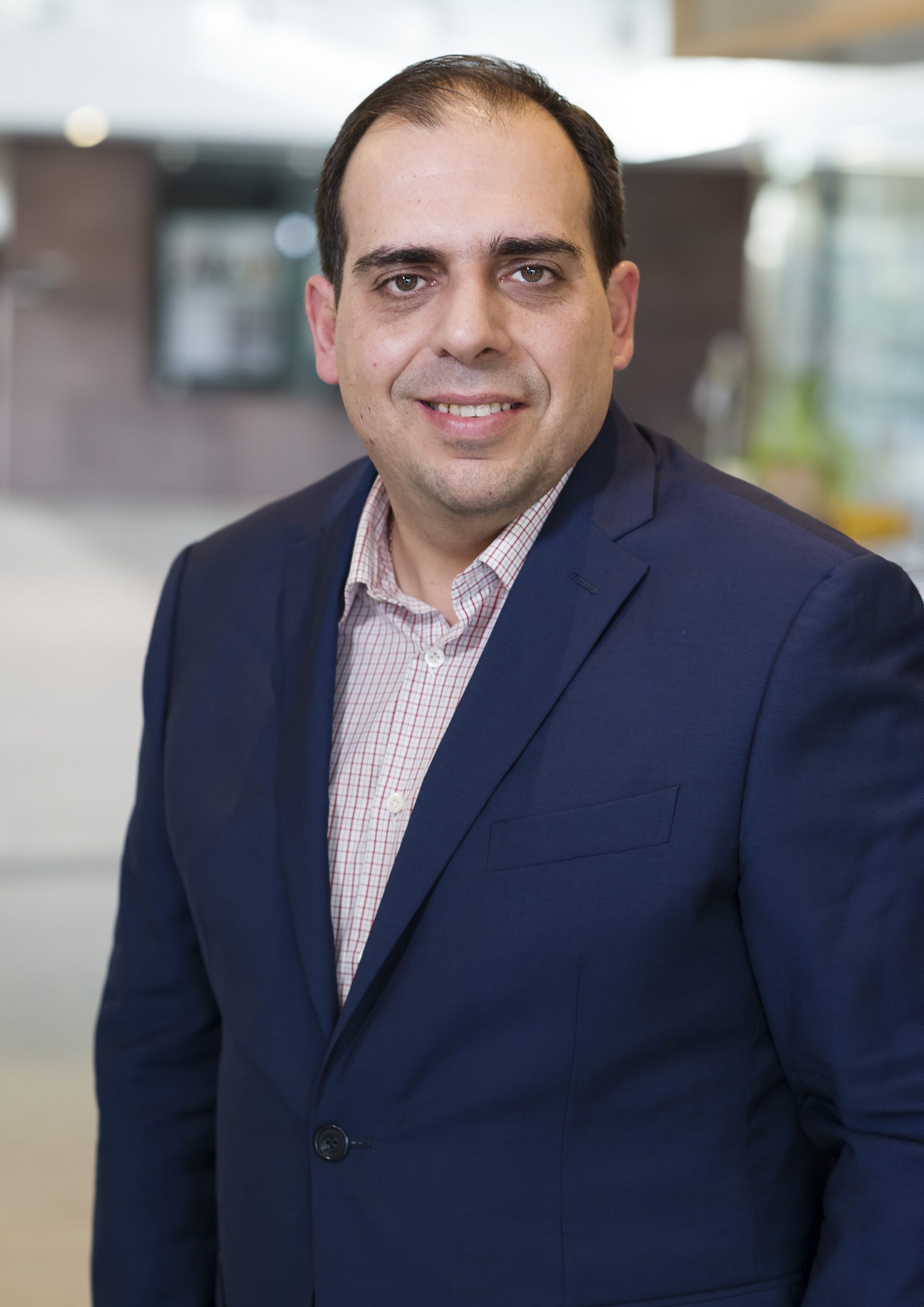
Dr Nikolaos Pitsos is currently Visiting Professor for Competition and Energy Regulation Law at the International University of Greece (IHU) located at Thessaloniki. He was previously the Scientific Assistant and Tutor for LL.M Degrees at the Free University of Berlin and a Visiting Professor for Business Law Greek National School of Judges. He is a member of the Berkeley Global Society and LL.M. Alumni Ambassador, Berkeley Law USA.
The Ronan Harty Newman Fellowship will focus on the role of competition law in realising societal objectives of sustainability, regulation under the recent EU Artificial Intelligence Act, and what it may mean for competition law. Dr Pitsos will also explore the goals and the regulatory instruments of the EU for the establishment of a competitive internal energy market after the recent energy crisis and the advantages and challenges to converge the US and European Antitrust approaches toward big tech and mergers control.
Dr Nikolaos Pitsos is supervised by Professor Imelda Maher and is based in UCD Sutherland School of Law. His Newman Fellowship is supported by Ronan Harty.
Dr Saoirse Enright
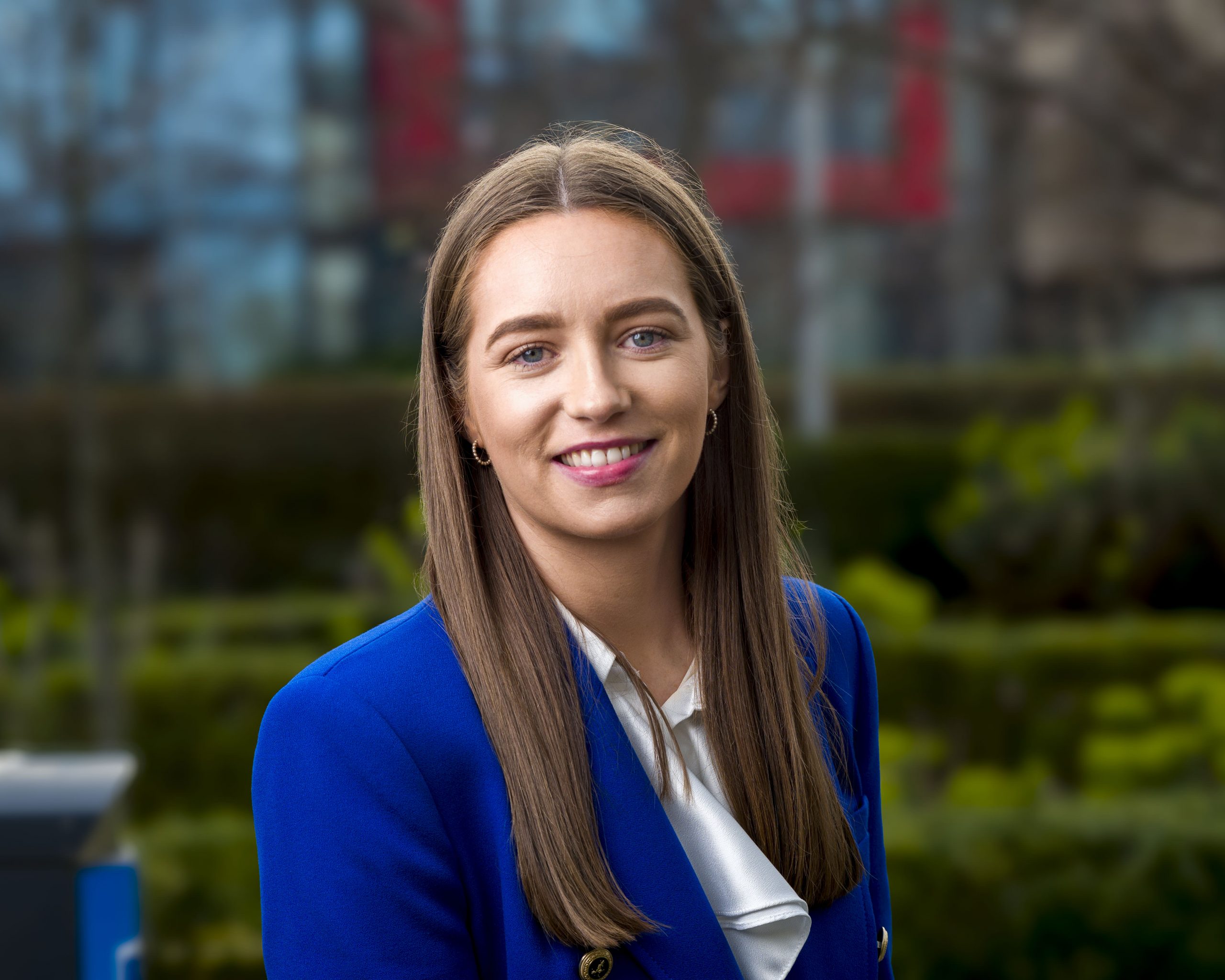
Before beginning her Newman Fellowship, Dr Saoirse Enright completed a first class honours Bachelor of Laws and Master of Laws (General) at the Univeristy of Limerick. She also completed an Irish Research Council Funded PhD at the University of Limerick under the supervision of Dr Laura Cahillane. Her PhD research examined the contribution of Mr Justice Brian Walsh to Irish constitutional jurisprudence.
Dr Enright’s interdisciplinary mixed-methods Newman Fellowship research project will explore why ethnic minorities and socio-economically disadvantaged school pupils, college students and law graduates are less likely to become practising lawyers. It will contribute to current and new initiatives to improve access to law degrees and to the legal profession for ethnic minorities and socio-economically disadvantaged citizens. For example, it has the potential to inform actions to implement the National Access Plan 2022-2028.
Dr Saoirse Enright is supervised by Assistant Professor Dr Sara Benedí Lahuerta and is based in UCD Sutherland School of Law. Her Newman Fellowship is supported by Matheson.
Dr Conor Smith
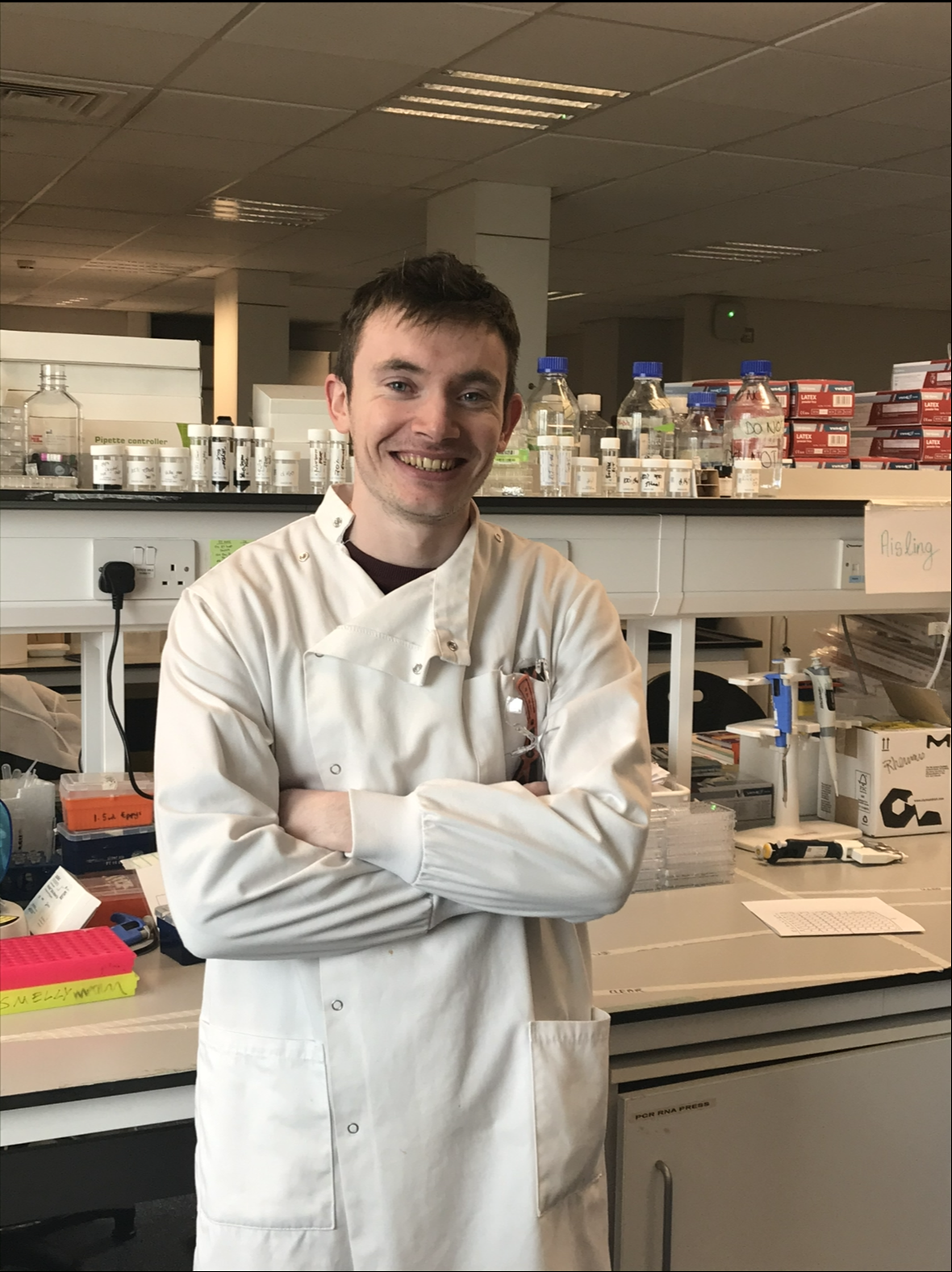
After completing his BSc in Biological and Biomedical Sciences in Maynooth University, Dr Conor Smith enrolled in the MSc in Diagnostics and Precision Medicine in Dublin City University, receiving a first class honours and finishing top of his class. In September 2019, Conor started his PhD in the Translational Immunology lab in Trinity College Dublin under the supervision of Dr Jean Fletcher and Dr Andreea Petrasca. Here, his research focused on understanding the complex inflammatory landscape of the inflammatory skin disease hidradenitis suppurativa and identifying novel therapeutic targets for these patients.
Continuing on from his PhD research, this Newman Fellowship project will focus on a specific immune cells which are dysregulated in hidradenitis suppurativa (HS). Conor’s Fellowship will investigate the role of resident memory T cells in the skin of HS patients. These cells are likely primed to respond to a variety of stimuli and have been shown to drive inflammation in normal skin of psoriasis patients. Characterising these resident memory T cells in HS patients will advance our understanding of HS pathogenesis, and potentially direct future therapeutic strategies for the treatment of HS.
Dr Conor Smith is supervised by Professor Brian Kirby in UCD School of Medicine and St Vincent’s University Hospital. His Newman Fellowship is supported by Janssen.
Dr Micheal Hanly
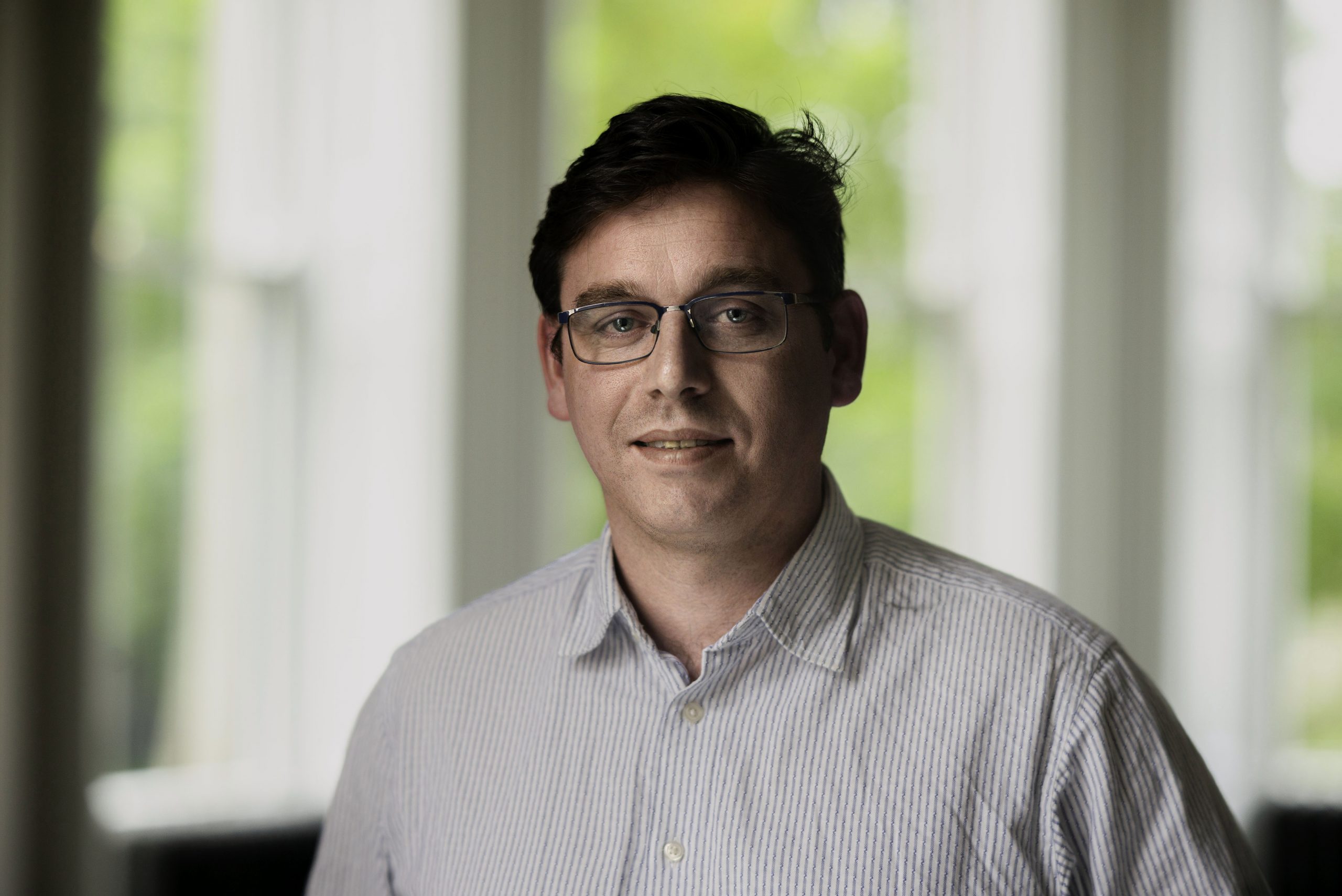 Before beginning his Newman Fellowship Dr Micheal Hanly completed his Bachelor of Medicine, Bachelor of Surgery in the University of Limerick in 2014. He also holds an MRCPI from the Royal College of Physicians of Ireland.
Before beginning his Newman Fellowship Dr Micheal Hanly completed his Bachelor of Medicine, Bachelor of Surgery in the University of Limerick in 2014. He also holds an MRCPI from the Royal College of Physicians of Ireland.
Dr Hanly’s Newman Fellowship plans to evaluate the feasibility of a non-invasive surveillance strategy for patients undergoing post-polypectomy surveillance within the bowel screening programme. Colon capsule endoscopy (CCE) is a non-invasive alternative to colonoscopy that has been shown to increase screening participation. It has been associated with less patient discomfort compared with standard colonoscopy.No serious adverse events were reported in previous studies for CCE. Another recent systematic review identified 582 studies of which 13 were included, comprising 2485 patients. Eight studies used CCE as a filter test after a positive FIT result and five studies used CCE for primary screening. Neither systematic review examined the issue of cost and resource utilization as colon capsule examination may be time consuming to read. The authors suggested further research was needed to define a clear role for FITs in surveillance. The introduction of new post polypectomy surveillance guidelines also means a re-assessment of this strategy should now be considered.
Dr Micheal Hanly is supervised by Professor Glen Doherty in UCD School of Medicine and St Vincent’s University Hospital. His Newman Fellowship is supported by BowelScreen.
Dr Alexandros Minotakis
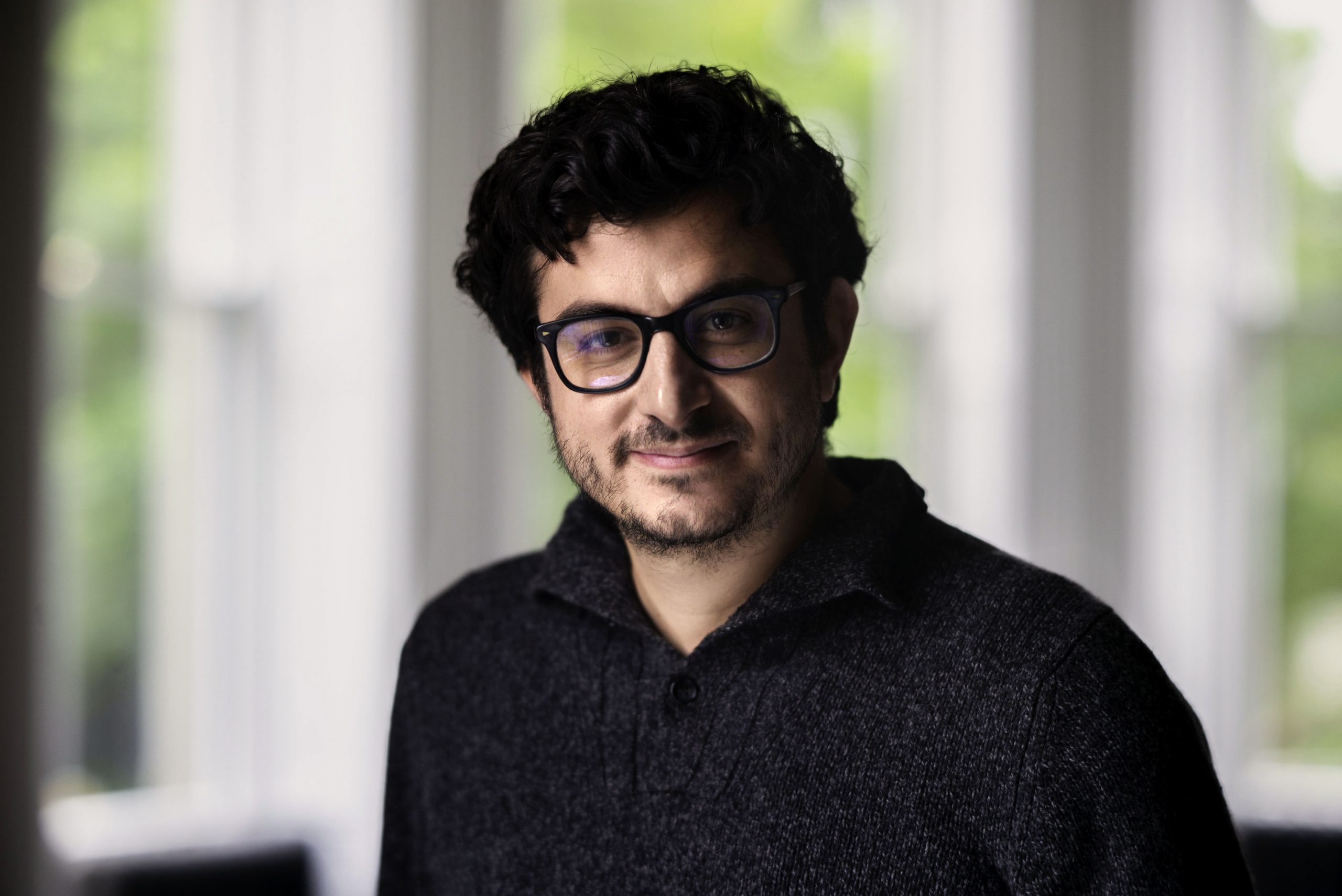 In 2022, Dr Alexandros Minotakis successfully completed his doctoral studies. The focal point of his research endeavor was the examination of Neoliberalism’s influence on the Greek Media System. Employing a methodological approach informed by the critical political economy of the media, his objective was to highlight the connections between neoliberal policies and the evolution of media systems over the past three decades, with a specific attention to the Greek media system during the turbulent period of the 2010-2015 debt crisis.
In 2022, Dr Alexandros Minotakis successfully completed his doctoral studies. The focal point of his research endeavor was the examination of Neoliberalism’s influence on the Greek Media System. Employing a methodological approach informed by the critical political economy of the media, his objective was to highlight the connections between neoliberal policies and the evolution of media systems over the past three decades, with a specific attention to the Greek media system during the turbulent period of the 2010-2015 debt crisis.
Alexandros’ Newman Fellowship is centered on emerging digital policy initiatives, with a specific emphasis on recent endeavors aimed at instituting a robust framework for the regulation of Artificial Intelligence (AI). In the context of the rapid development of new technologies, concerns pertaining to social justice, inclusivity, and the welfare of vulnerable social groups frequently remain marginalized. Through this lens, his research aspires to make a substantive contribution by facilitating the creation of monitoring mechanisms for the assessment and oversight of digital policy implementation. Furthermore, it seeks to shed light on the blind spots and inadequacies inherent in the existing policy framework.
Dr Alexandros Minotakis is supervised by Professor Eugenia Siapera in UCD School of Information and Communication Studies. His Newman Fellowship is supported by Microsoft.
Dr Eva McCabe
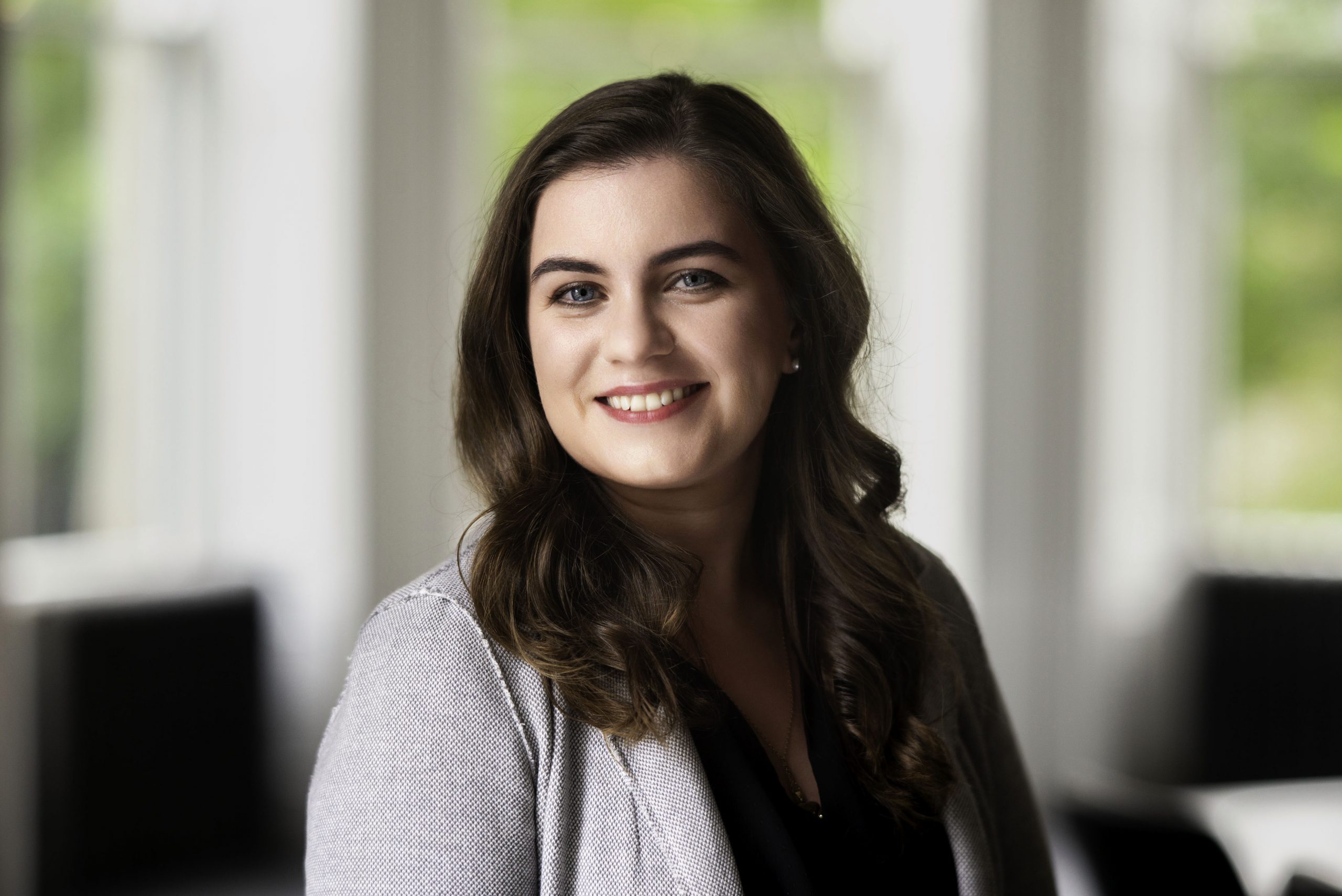 Dr Eva McCabe is a medical graduate of the University of Galway and became a member of the Royal College of Physicians in 2017. She obtained an MSc in Clinical Research in 2019. She is currently completing higher specialist training in Rheumatology.
Dr Eva McCabe is a medical graduate of the University of Galway and became a member of the Royal College of Physicians in 2017. She obtained an MSc in Clinical Research in 2019. She is currently completing higher specialist training in Rheumatology.
This Newman Fellowship project is focused on psoriatic arthritis (PsA), a form of inflammatory arthritis which affects approximately one third of those with psoriasis. It typically presets in adulthood, in the third to fourth decades. It is a heterogenous condition which is often associated with metabolic co-morbidities including obesity, diabetes and cardiovascular disease. Multi-morbidity can limit therapeutic options in PsA and influence disease activity. Through the Newman Fellowship, Eva will examine the role of obesity and adipokines in PsA to further our understanding of the disease pathogenesis and develop more individualised treatment plans for those affected.
Dr Eva McCabe is supervised by Professor Carl Orr and is based in UCD School of Medicine. This Newman Fellowship is supported by the Centre for Arthritis and Rheumatic Disease.
Dr Sarah Wallace
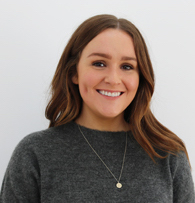 Dr Sarah Wallace received her PhD from Trinity College Dublin in 2023 during which time she was awarded a full scholarship and held an Early Career Researcher Residency in the Trinity Long Room Hub. Her doctoral research was an in-depth qualitative study that explored the attitudes and lived experiences of members of the Good Friday Agreement generation in Northern Ireland, with specific focus on cross community relations, economic opportunities, security, and governance.
Dr Sarah Wallace received her PhD from Trinity College Dublin in 2023 during which time she was awarded a full scholarship and held an Early Career Researcher Residency in the Trinity Long Room Hub. Her doctoral research was an in-depth qualitative study that explored the attitudes and lived experiences of members of the Good Friday Agreement generation in Northern Ireland, with specific focus on cross community relations, economic opportunities, security, and governance.
This Newman Fellowship research focuses on unionists in Northern Ireland, both in terms of their views on the reunification of Ireland, and their relationships with other unionists across Britain. This research is both timely and of critical importance given that in the last six years, Northern Ireland has faced on-going political crises and heightened societal tension as a result of Brexit and the resultant unprecedented challenges facing the Good Friday Agreement. Northern Ireland faces huge challenges both externally, with the instability of the power sharing institutions, and internally, as the conversation around the reunification of Ireland gains momentum. Therefore, detailed, balanced and accurate research must inform current and future debates and decisions regarding the constitutional future of the island of Ireland. Specifically, this research will provide a platform for unionists to have their voices heard and will ensure that their thoughts, fears, values, and hopes for the future of Northern Ireland are part of the conversation.
Dr Sarah Wallace is supervised by Dr Paul Gillespie in UCD School of Politics and International Relations at UCD Centre for Peace and Conflict Research. This Newman Fellowship is kindly supported by the Reconciliation Fund, Department of Foreign Affairs and Trade.
Dr Ryan Donnelly
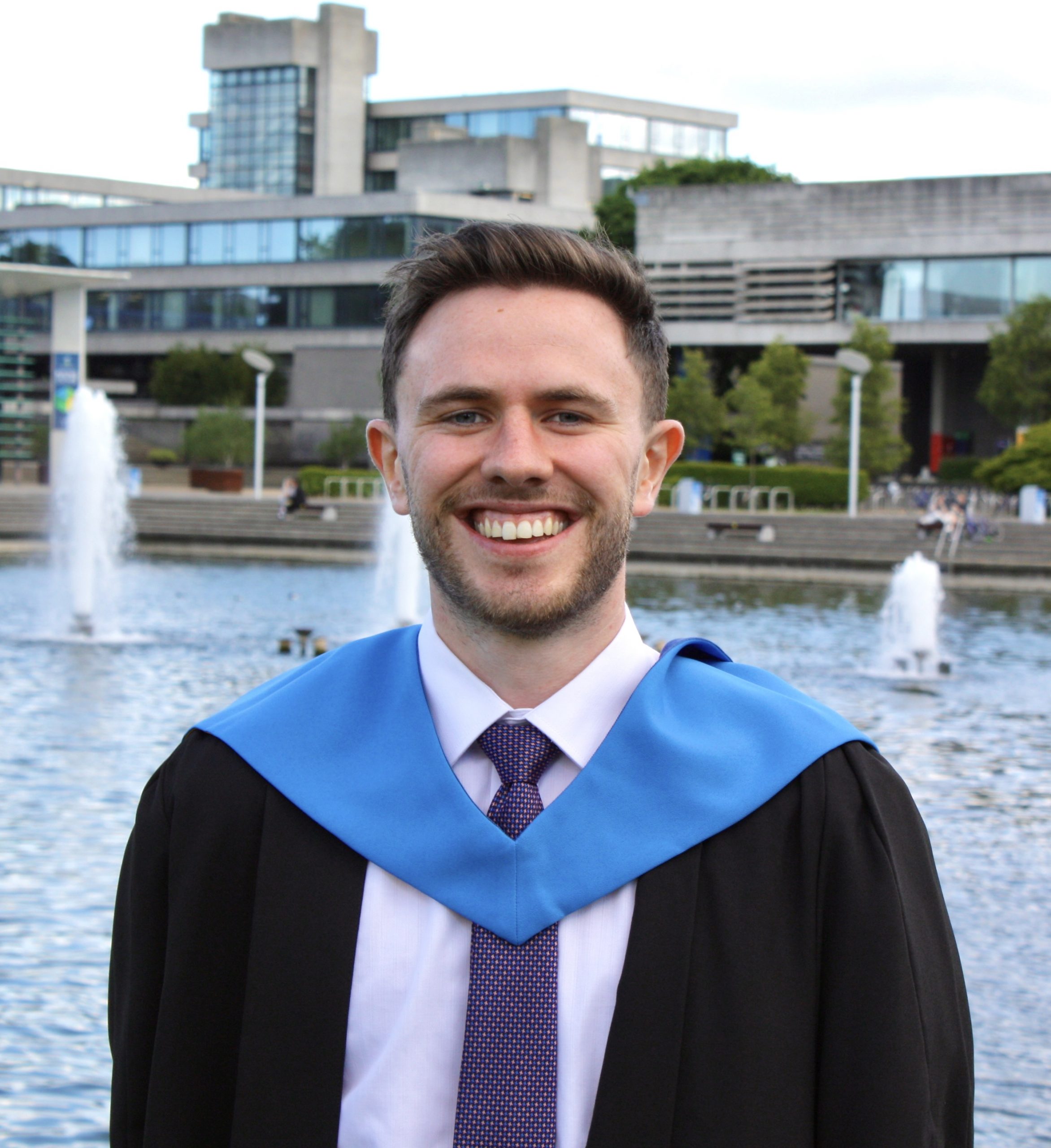 Prior to becoming a Newman Fellow, Dr Ryan Donnelly previously completed an undergraduate degree in Chemistry in University College Dublin with a particular focus on Nano-materials. He graduated from Graduate Entry Medicine (GEM) in UCD in 2021. He has since completed a MSc in Surgery from Galway University in 2023 while training in St Vincent’s University Hospital.
Prior to becoming a Newman Fellow, Dr Ryan Donnelly previously completed an undergraduate degree in Chemistry in University College Dublin with a particular focus on Nano-materials. He graduated from Graduate Entry Medicine (GEM) in UCD in 2021. He has since completed a MSc in Surgery from Galway University in 2023 while training in St Vincent’s University Hospital.
Sarcoidosis is a granulomatous disease of which the cause remains unknown. The diverse clinical manifestations are challenging for clinicians, particularly when conventional markers are inconclusive. From various studies, it has become clear that fluorodeoxyglucose (FDG) positron emission tomography (PET)/CT aids in sarcoidosis care, particularly in cardiac sarcoidosis. Despite the increasing use of FDG PET/CT in the evaluation of cardiac involvement, it remains unclear how well FDG PET/CT specifically correlates with pulmonary disease and treatment response. This project will examine this relationship and determine the prognostic value of FDG PET/CT in guiding sarcoidosis treatment. These initial findings will serve the advancement of patient care in sarcoidosis and further FDG PET/CT related research in this disease area.
Dr Ryan Donnelly is supervised by Professor Emmet McGrath in UCD School of Medicine. This Newman Fellowship is supported by St Vincent’s Private Hospital.
Dr Deirdre Brennan
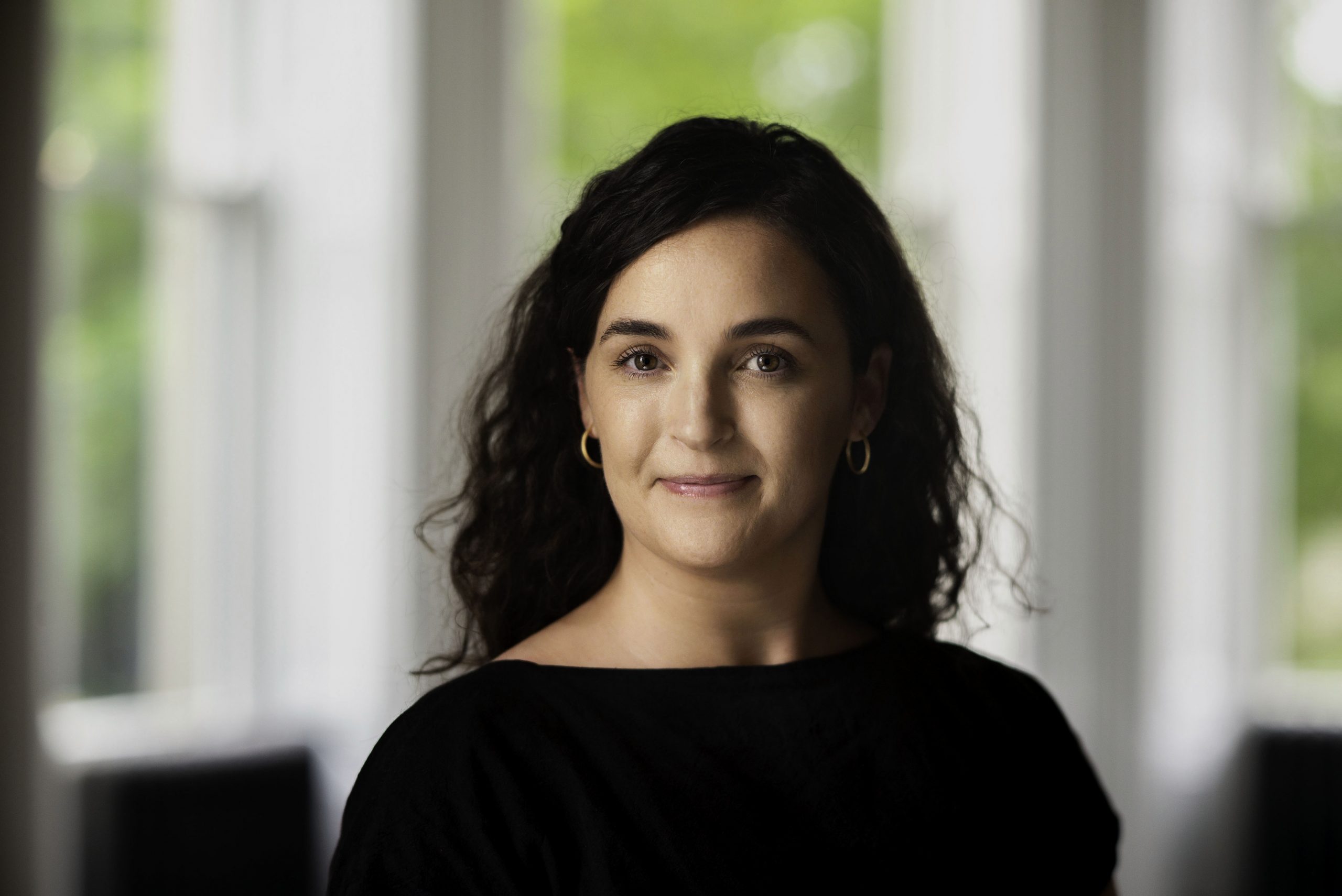
For over ten years, Dr Deirdre Brennan has worked as a researcher both within the NGO sector and academia, where her research interests have concerned the intersections between gender, law, and activism. Throughout her career, Deirdre has sought to communicate issues facing women and marginalised communities, in particular the lived experience of statelessness.
The Smurfit Kappa Newman Fellowship on Women in STEM will investigate the experiences of women working in engineering in order to understand whether, and why, women choose to leave careers in this field. The shortage of women entering and remaining in engineering is an important matter, particularly in light of the impacts of climate change and the necessity of a diverse team to tackle such complex issues. The Fellowship, it is therefore hoped, will uncover the needs and experiences of women working in STEM in order to directly impact how industries attract and retain women working in these important roles.
Dr Deirdre Brennan is supervised by Professor Aoife Ahern in UCD School of Civil Engineering and this fellowship is supported by Smurfit Kappa.
Dr Anne Fennessy
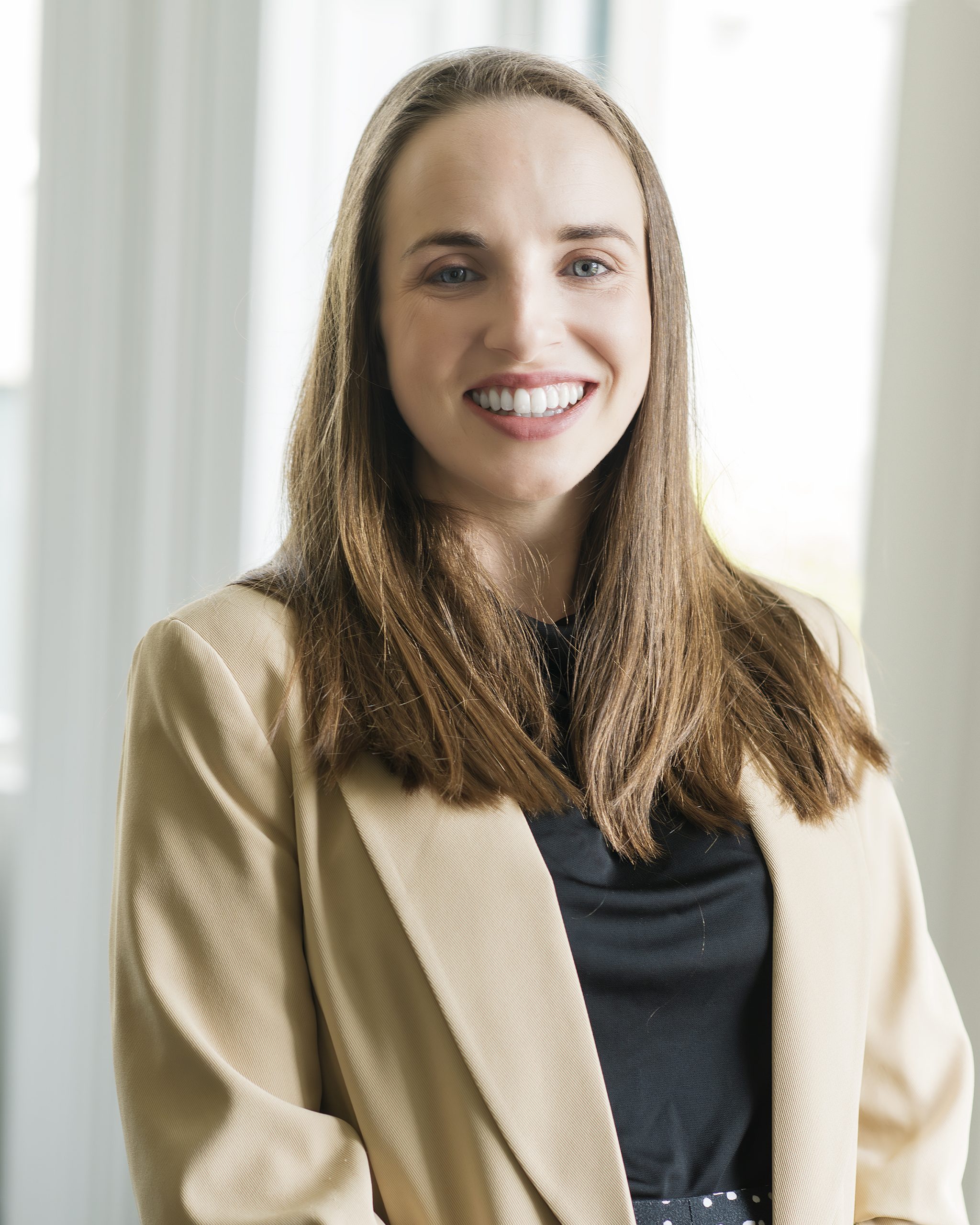 Dr Fennessy is a Gastroenterology Specialist Registrar with an interest in Inflammatory Bowel Disease.
Dr Fennessy is a Gastroenterology Specialist Registrar with an interest in Inflammatory Bowel Disease.
Over 35,000 Irish people are affected by the inflammatory bowel diseases (IBD). Fatigue, which can be defined as an overwhelming feeling of tiredness, exhaustion or lack of energy, is an important clinical problem in IBD, affecting nearly 50% of patients in clinical remission and over 80% of those with active disease. The resulting decrease in quality of life, impaired work productivity and functioning contribute markedly to the personal and societal costs of fatigue. Previous research on fatigue has been fractured, and no study has attempted to define a coherent treatment algorithm for patients with IBD suffering from fatigue. Our study aims to assess the severity and sources of fatigue in patients with IBD and test a range of treatments in clinical practice.
Dr Anne Fennessy is supervised by Professor Hugh Mulcahy and this Newman Fellowship is supported by Boston Scientific.
Dr Verity Burke
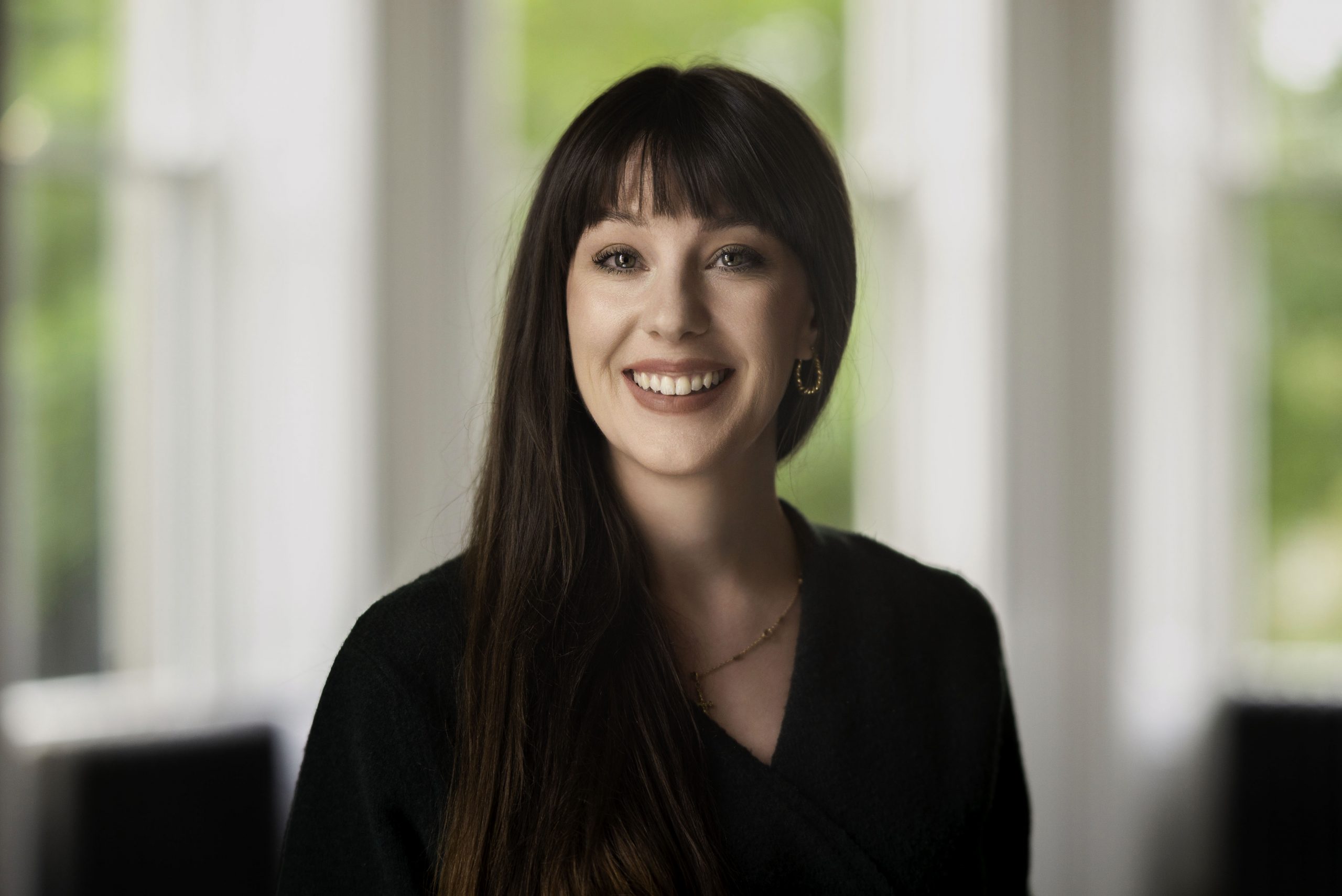
Dr Burke’s expertise sits at the intersections of literary analysis, the environmental humanities, and museum studies. Since 2018, she has researched the stories we tell through the display cultures of our natural history museums, including as Principal Investigator on Still Lives: Organic and Digital Animals in the Natural History Museum (IRC, Trinity College Dublin), and as research associate on Narrativising Dinosaurs: Science and Popular Culture, 1850-Present (AHRC, University of Birmingham) and Beyond Dodos and Dinosaurs: Displaying Extinction and Recovery in Museums (NFR, Universitet i Stavanger).
Environmental communication has been recognised across many high-level policies and strategies as an important part of enacting change, and both policy and research have found that museums are almost uniquely positioned as sites not just for communication but for climate action. Yet climate empowerment is not created solely by presenting the science: the arts have a vital role in communicating climate issues. Verity’s Fellowship will develop our understanding of the meaningful impact that heritage and the humanities can have on climate change.
Verity is supervised by Professor John Brannigan and Professor Tasman Crowe. The Newman Fellowship is supported by the John Pollard Foundation.
Dr Audrey Reynolds
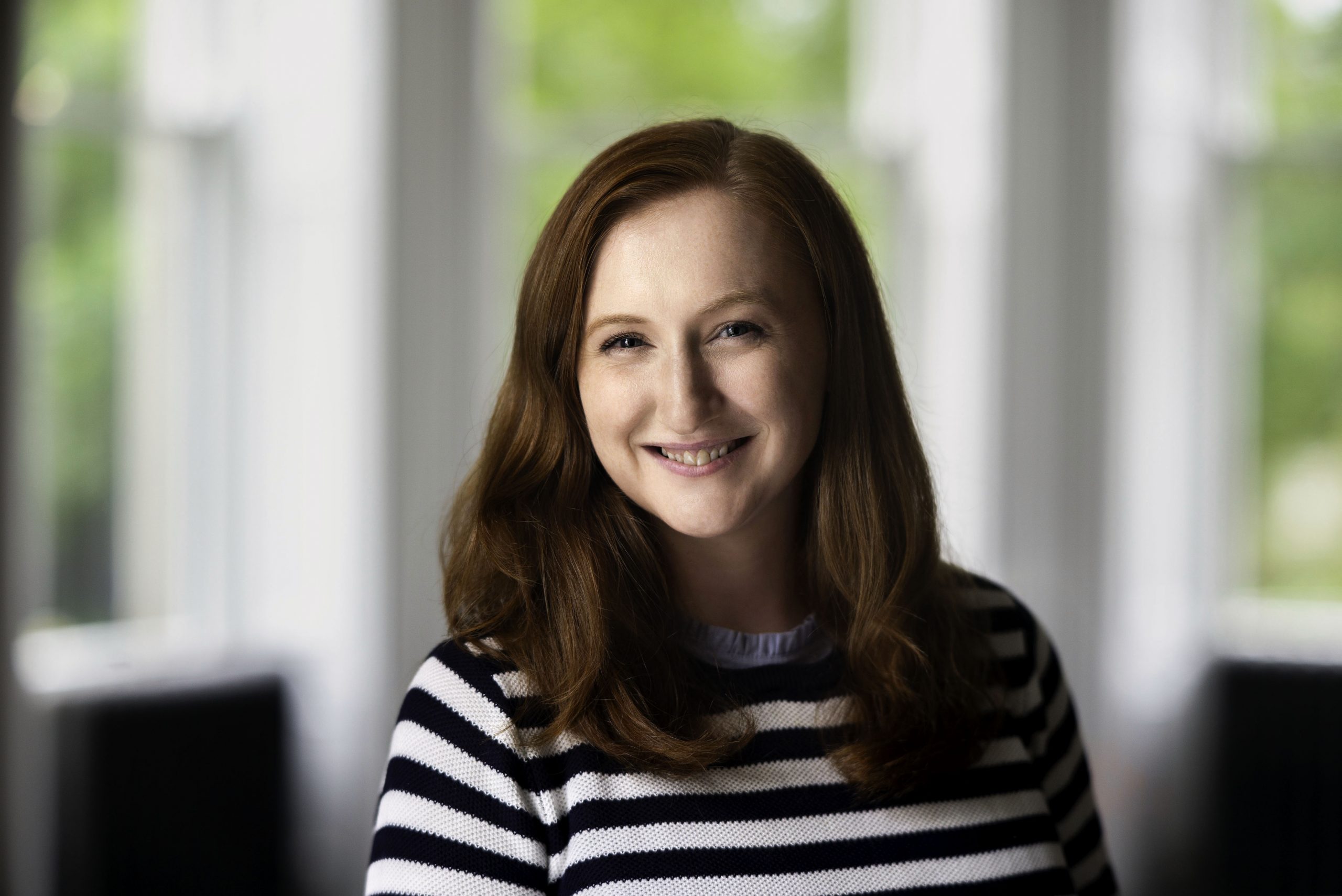 Before beginning her Newman Fellowship, Dr Audrey Reynolds had completed four years of training as a Specialist Registrar in Neurology. She was eager to further her subspecialist training and expertise in Multiple Sclerosis. In addition to clinical experience as a neurology registrar, she had previous research experience in the field of multiple sclerosis.
Before beginning her Newman Fellowship, Dr Audrey Reynolds had completed four years of training as a Specialist Registrar in Neurology. She was eager to further her subspecialist training and expertise in Multiple Sclerosis. In addition to clinical experience as a neurology registrar, she had previous research experience in the field of multiple sclerosis.
Multiple sclerosis is a common condition of the central nervous system which can cause significant disability. The past twenty years has seen a number of new drugs developed for the treatment of relapsing forms of MS, which are mainly caused by inflammation, but more progressive forms of MS are still difficult to treat. We think this is partially because the tools we use to identify or measure if a person is slowly progressing are poor at present and need to be improved. Previously we have shown some new technologies that measure balance or speech and new ways of testing someone’s cognitive function may be better at detecting subtle changes in MS and now we want to study how these measures behave if the tests are repeated two years after the initial assessments to see if they are valuable in detecting change over time.
Dr Audrey Reynolds is supervised by Professor Christopher McGuigan and is based at UCD School of Medicine. Her Newman Fellowship is supported by Novartis.
Dr Joanna Stefan
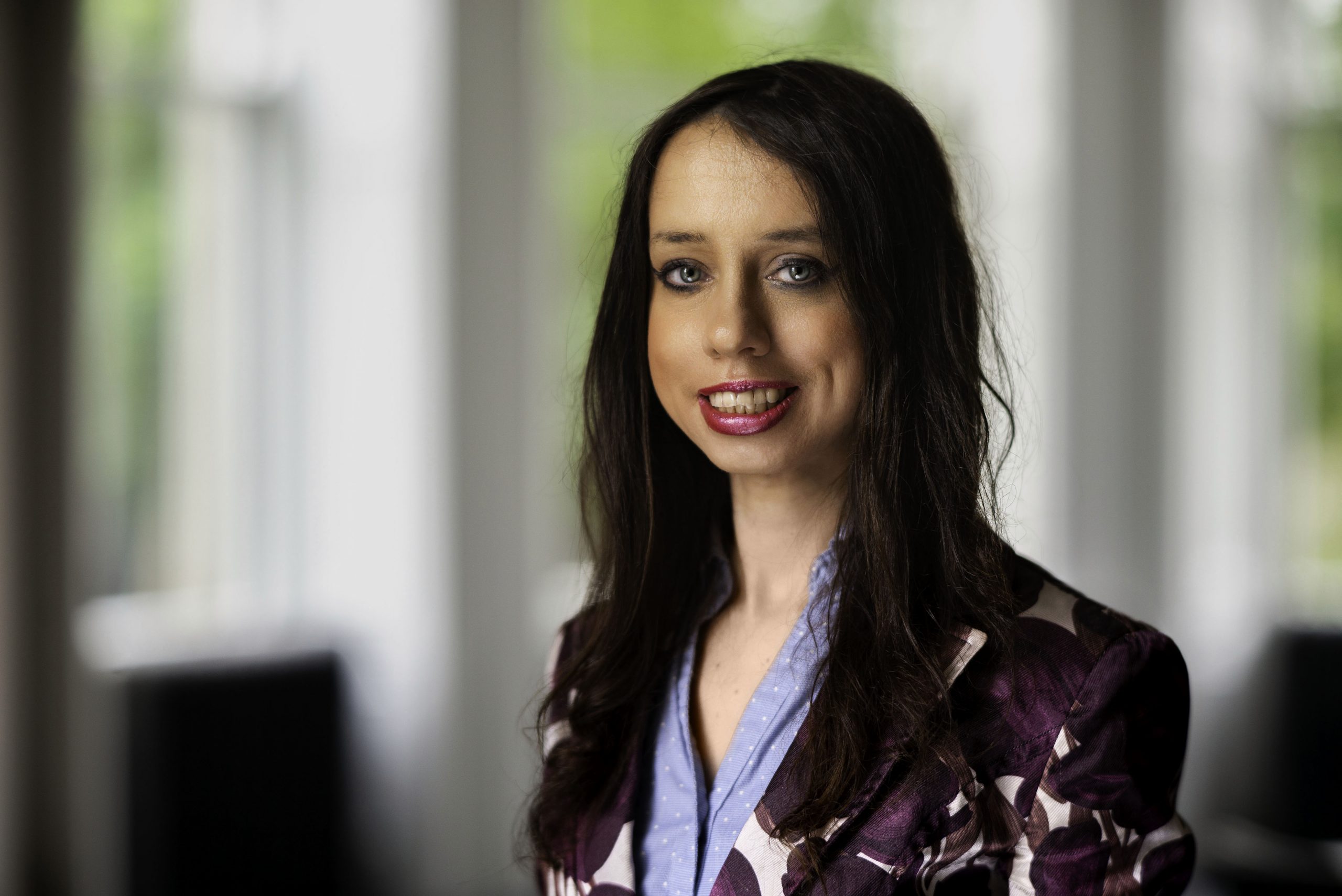
Dr Joanna Stefan received a PhD in medical sciences at the Jagiellonian University Medical College.
Dr Stefan’s Newman Fellowship project focuses on the Recessive Dystrophic Epidermolysis Bullosa (RDEB), an inherited and incurable skin disorder, where blistering/erosions can occur spontaneously or after minimal physical trauma. Chronic wounds are then complicated by infections, prolonged inflammation, and in some types, skin cancer. Currently management of RDEB is limited to control of pain and itch, minimization of infection and surgical management of complications. There is an urgent need to improve patient’s life opportunities.
Dr Joanna Stefan aims to investigate the molecular mechanism of the loss of skin integrity in the patients with Recessive Dystrophic EB, whose skin splits in the upper dermis, and tries to explore scalp hair follicles as a source of collagen VII-positive wound healing cells as a potential candidate for cell therapy of RDEB with resolution of inflammation and improvement of skin integrity.
Dr Joanna Stefan is supervised by Professor Desmond Tobin, UCD Charles Institute of Dermatology at the UCD School of Medicine and by Dr Fiona Browne, Children’s Health Ireland Hospital. Her Fellowship is supported by Sanofi.
Dr Lakshman Kumar
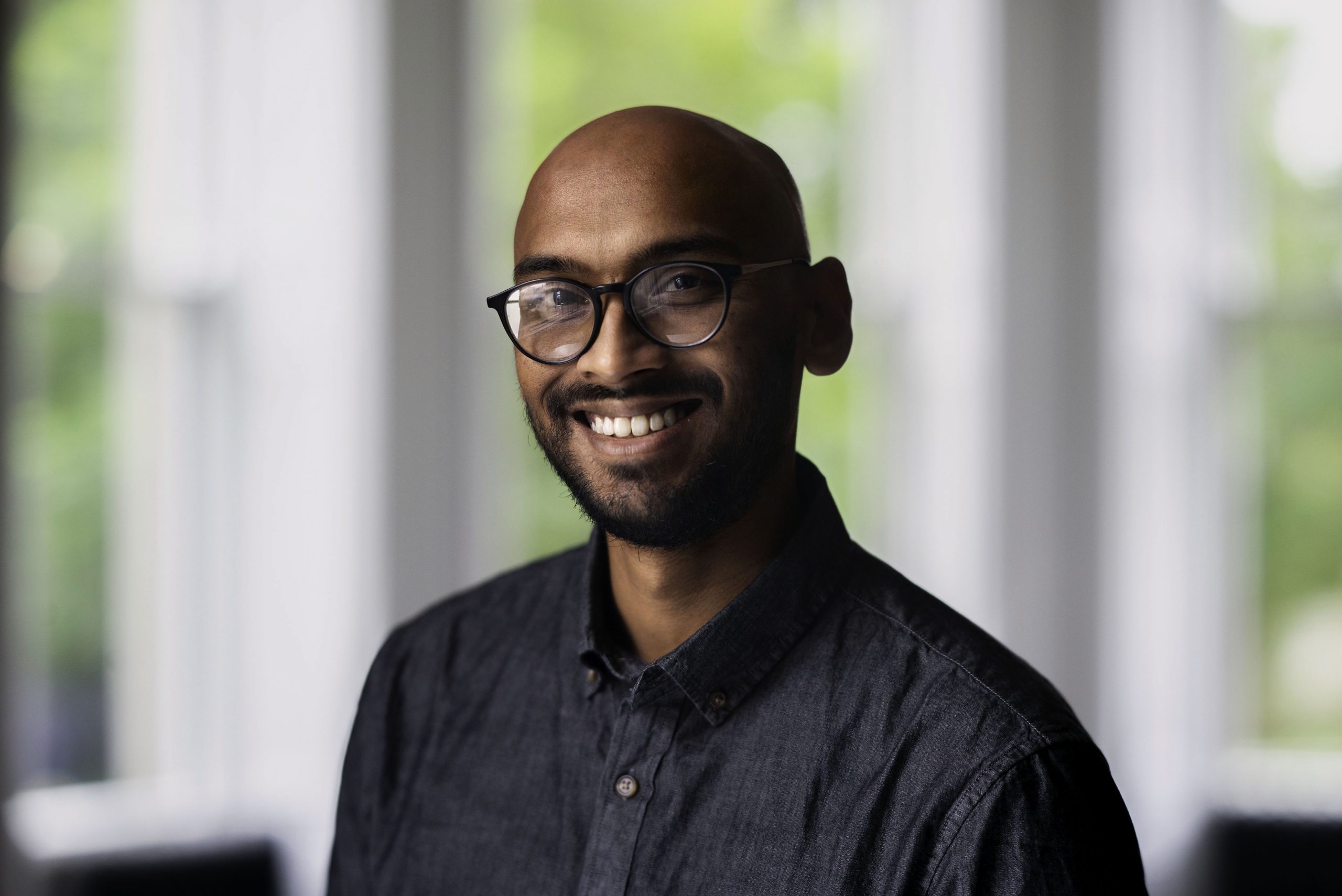 Before beginning his Fellowship, Dr Lakshman Kumar was a Gastroenterology Specialist Registrar with an interest in Inflammatory Bowel Disease. Improving outcomes and contributing to a positive impact in patients’ quality of life was a significant driver to his decision in pursuing this subspecialty. He had completed 3 years in gastroenterology, gaining experience in managing patients with this chronic condition and my time in training provided me with a deeper understanding of the impact IBD has on patients’ lives. Research in this field gives Lakshman the opportunity to contribute to patient care in a very different and meaningful way.
Before beginning his Fellowship, Dr Lakshman Kumar was a Gastroenterology Specialist Registrar with an interest in Inflammatory Bowel Disease. Improving outcomes and contributing to a positive impact in patients’ quality of life was a significant driver to his decision in pursuing this subspecialty. He had completed 3 years in gastroenterology, gaining experience in managing patients with this chronic condition and my time in training provided me with a deeper understanding of the impact IBD has on patients’ lives. Research in this field gives Lakshman the opportunity to contribute to patient care in a very different and meaningful way.
The overall aim of Lakshman’s Newman Fellowship is to achieve consensus on which clinical and patient reported outcomes are most representative of clinical effectiveness in patients with IBD with stomas receiving treatment or intervention. To define how these outcomes are best measured and to develop and validate tools for measuring those outcomes ranked most important. To verify the outcomes are responsive to effective treatment/interventions and thus to facilitate the inclusion of patients with IBD who have stomas in future clinical trials and intervention studies. To improve the representation of patients with IBD who have stomas in trials and thus make future results more generalisable.
Dr Lakshman Kumar is supervised by Professor Glen Doherty and is based in UCD School of Medicine. His Newman Fellowship is supported by AbbVie.
Dr Mary O'Reilly
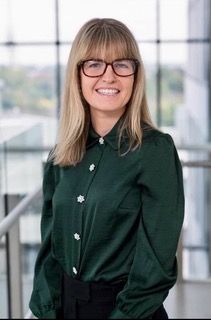 Dr Mary O’Reilly graduated from University College Cork in 2015 with a medical degree and became a member of the Royal College of Physicians of Ireland in 2019. She completed a MSc in Clinical and Translational Medicine in University College Dublin in 2022.
Dr Mary O’Reilly graduated from University College Cork in 2015 with a medical degree and became a member of the Royal College of Physicians of Ireland in 2019. She completed a MSc in Clinical and Translational Medicine in University College Dublin in 2022.
Mary’s Fellowship focuses on Colorectal cancer. Over the last two decades, the incidence of colorectal cancer in those under 50 years of age has risen. It has been hypothesised that early onset colorectal cancers have a distinct biology from those occurring at an older age. This project will analyse the genome, transcriptome, proteome and metabolome of tumours arising in the early onset colorectal cancer cohort. This systems biology genetic and multiomic analysis will thoroughly investigate the composition of of cancer cells in young adults compared with older adults. This is an urgent unmet clinical need.
This study has the potential to identify relevant predictive and prognostic biomarkers associated with colorectal cancer. This may serve as an identifier of the cohort of younger patients without a familial predisposition cancer syndrome who may benefit from cancer screening at a younger age.
Mary is supervised by Professor Walter Kolch, Professor Kieran Sheahan, Professor Des Winter and Professor Ray Mc Dermott. The Newman Fellowship is supported by Merck and MSD.
Dr Noa Gordon
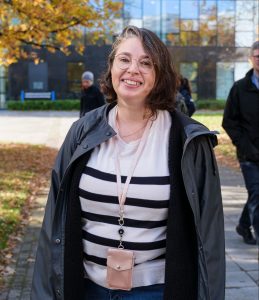 Dr Noa Gordon received her undergraduate degree in Computation Biology and two Masters level degrees in Bioinformatics and in Public Health from the Hebrew University in Jerusalem and Tel-Aviv University, Israel. She completed a PhD in Health Policy and Management at the Ben-Gurion University of the Negev, Israel, in 2021. Her PhD research examined various aspects of off-label prescription of oncology drugs by applying mixed (quantitative and qualitative) methods.
Dr Noa Gordon received her undergraduate degree in Computation Biology and two Masters level degrees in Bioinformatics and in Public Health from the Hebrew University in Jerusalem and Tel-Aviv University, Israel. She completed a PhD in Health Policy and Management at the Ben-Gurion University of the Negev, Israel, in 2021. Her PhD research examined various aspects of off-label prescription of oncology drugs by applying mixed (quantitative and qualitative) methods.
Noa’s research interests include medical decision-making, pharmacoeconomics and outcomes research in oncology. Starting in September 2022, Noa Joined the Irish Prostate Cancer Outcomes Research (IPCOR) project. In her fellowship, she will utilize IPCOR data to better understand referral, diagnostic and treatment pathways for prostate cancer across Ireland, examining socio-demographic and geographical variations. She will also use IPCOR data to describe the effects of diagnosis and treatment on men’s quality of life by exploring the patient-reported outcomes (PROMs) data. Noa is supervised by Dr David Galvin and Professor Bill Watson and is based at the UCD Conway Institute with the Newman Fellowship is supported by Movember and Janssen.
Dr Shameer Rafee
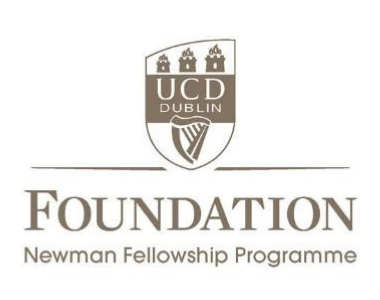 Dr Shameer Rafee studied medicine at Trinity College Dublin and subsequently worked as a senior house officer in neurosurgery in Beaumont Hospital, Dublin.
Dr Shameer Rafee studied medicine at Trinity College Dublin and subsequently worked as a senior house officer in neurosurgery in Beaumont Hospital, Dublin.
Shameer’s Newman Fellowship research will inform the development of appropriate treatments for patients with cervical dystonia, a condition characterised by muscle spasms and pain in the head, neck and shoulders; most commonly the head and neck twists to one side. It is proposed that people with cervical dystonia have a disorder in a neural pathway between the colliculus and the amygdala, which may be relevant to disordered social cognition and perhaps result in a secondary mood disorder. Shameer will investigate the functioning of this pathway in cervical dystonia patients.
Shameer is supervised by Professor Michael Hutchinson, UCD School of Medicine and St Vincent’s University Hospital. His Fellowship is supported by the Merrion Neuroscience Foundation.
Dr Meera Tandan
 Dr Meera Tandan holds a PhD in Medicine from NUIG and has a masters degree in Public Health from B.P Koirala Institute of Health Science in Nepal. Dr Tandan’s main research areas are Public Health, Epidemiology, Antimicrobial Resistance, Primary Care and Health Service research.
Dr Meera Tandan holds a PhD in Medicine from NUIG and has a masters degree in Public Health from B.P Koirala Institute of Health Science in Nepal. Dr Tandan’s main research areas are Public Health, Epidemiology, Antimicrobial Resistance, Primary Care and Health Service research.
Dr Tandan will use her Fellowship to explore and examine the challenges, solutions and change mechanisms required to deliver enhanced, team-based healthcare to the Irish population. The project will examine current general practice team-working and clinical care initiatives and evaluate their impact and seek to develop solutions for healthcare workers.
Dr Tandan is supervised by Professor Gerard Bury and is based in the UCD School of Medicine in the Centre for Emergency Medical Science. Her Fellowship is supported by Centric Health.
